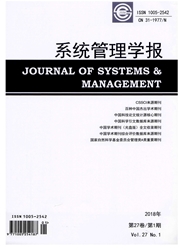

 中文摘要:
中文摘要:
考虑到群体成员存在责任分担的心理,构建了政府监管下的两阶段动态博弈模型。结果表明,政府监管力度、惩罚力度及责任分担心理是决定参与群体性事件的主要因素,也是群体成员选择先行参与或者跟随参与群体性事件的决定因素。对于群体性事件参与者的惩罚和监管都是控制事件发展的有效手段,并证明了存在最优的政府监管力度,使得群体性事件造成的社会影响最小,有效地防止事件扩大。
 英文摘要:
英文摘要:
Taking into account the psychology of responsibility-sharing of group members,we construct a two-stage dynamic game model under government supervision.The analysis indicates that government supervision,punishment and the psychology of responsibility-sharing are not only the major factors leading to unexpected mass incident,but also are the key elements determining individual's participation as first mover or follower in unexpected mass incident.Punishment and supervision are effective means of control over unexpected mass incident and optimal government supervision proves to be capable of minimizing the social impact of unexpected mass incident and preventing them from further spreading out.
 同期刊论文项目
同期刊论文项目
 同项目期刊论文
同项目期刊论文
 期刊信息
期刊信息
